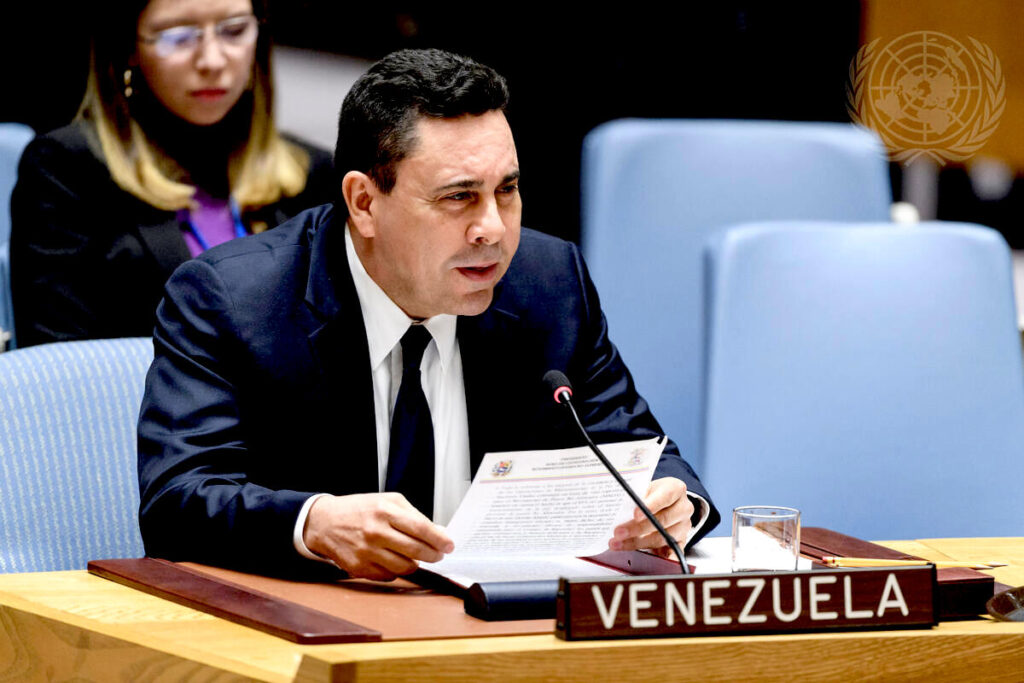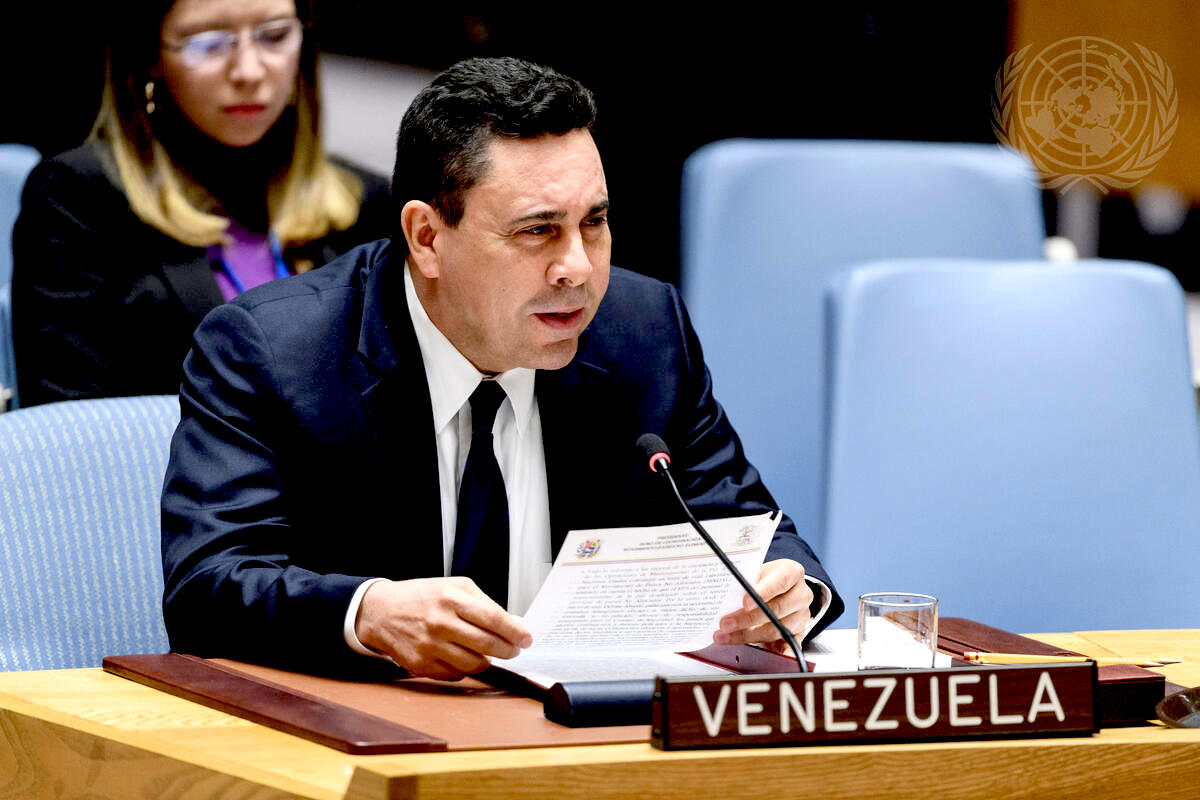
As the crisis unfolds, the brute exercise of power by the U.S. and Israel has catalyzed world reactions. A significant transformation in global diplomacy is underway.
My award for courageous elocution of the week goes hands-down to Samuel Moncada, Venezuela’s ambassador to the United Nations, who addressed the General Assembly last week on the topic of Israel and its barbaric attacks on the Palestinians of Gaza.
His remarks, which Consortium News reproduced, were appropriately lengthy. Here I draw from his introductory paragraphs:
“The Bolivarian Republic of Venezuela robustly condemns the Israeli aggression against the civilian population in the occupied Palestinian territories. This is an operation of mass expulsion of an entire people in order to annex their territory by the occupying power. It’s a new cycle of expansionist terror, of so much that has been suffered by the Palestinian people over 75 years of occupation….
It is repugnant to see how, despite the cruelty of the facts that are on view to the world, the government of the United States of America and its satellites aim to justify the unjustifiable:
That the occupying power is carrying out a genocide against the Palestinian people as defined in the Convention on the Prevention and Punishment of the Crime of Genocide and the Rome statute of the International Criminal Court. We ask ourselves where are those who in other cases rush to apply the responsibility to protect but now are ignoring the human rights of Palestinians submitted to the Israeli occupation?”
[See: A Blunt Message for Israel]
It is one thing, I have to say, for publications such as ScheerPost and Consortium News to publish commentary of this kind, or for many thousands of honorable people to march in the name of decency and justice. It is quite, quite another for a sovereign state to denounce Israel and the U.S. in a chamber such as the General Assembly.
It all counts, everything we do. But Moncada and the government he represents just elevated the condemnation of apartheid Israel to the level of global diplomacy and state-to-state relations.
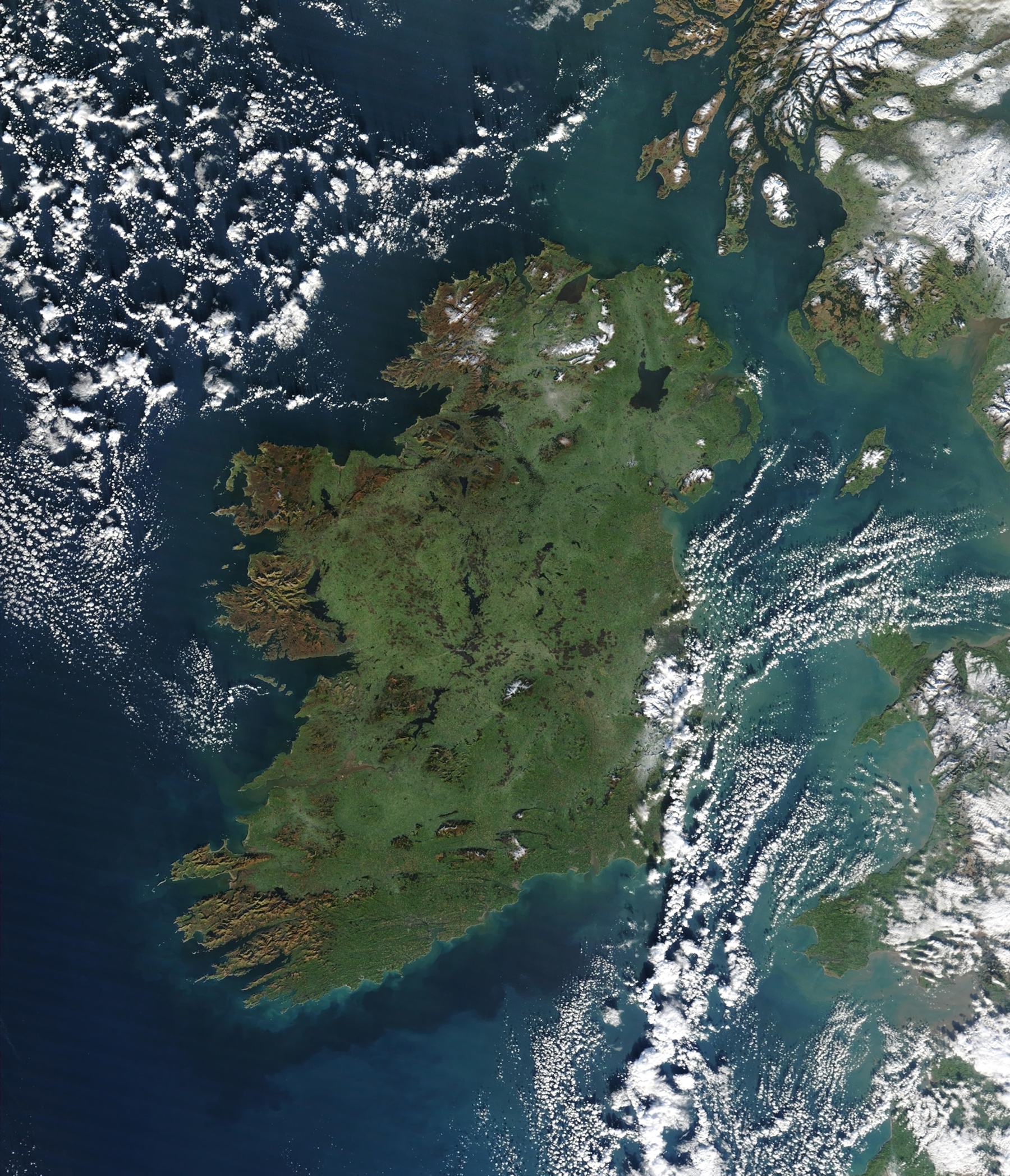
True-colour satellite image of Ireland, known in Irish as Éire. (Wikimedia Commons, Public domain)
Jump-cut to the Land of Eire. Members of the Dáil, the lower house of Ireland’s national assembly, were the first in Europe — and remain alone in this — to speak for Palestinian rights and against the Israel Defense Forces’ savagery after Hamas’ Oct. 7 incursion into southern Israel (which the Dáil also denounced).
As noted previously in this space, the Dáil voted last month on expelling the Israeli ambassador and referring Israel to the ICC. These motions were defeated, narrowly. But the government’s counter motions nonetheless “deplore the escalation of violence in Israel and the occupied Palestinian territory since [Oct. 7].”
As to the ICC referral, the government pointed out that an investigation into Israeli war crimes has been in train since 2021 — so, no point.
These are specific cases suggesting a larger whole. After the U.S., in February 2022, finally succeeded in provoking Russia to intervene in Ukraine, we recall, 90 percent of humanity declined to line up behind Washington and its European client states.
“The international community” whose support the Biden regime incessantly cited, turned out to be the 20–odd nations we refer to as the West.
Hamas’ attacks on noncombatants on Oct. 7 have been more or less universally condemned, as they should be. But Israel’s unrestrained response and the Biden regime’s unrestrained support of it have again divided the world.
The trans–Atlantic alliance, with the U.S. per usual in the lead, is full-tilt behind Israel’s outright genocide. Support for it is scarce in the non–West, while expressions of support for the Palestinians of Gaza are many if in some cases muted.
Exceptional Ireland
Ireland is, of course, an exceptional and interesting case, I should pause to note. The government of Taoiseach Leo Varadkar won the day in the Dáil last month, yes, but Ireland’s identity is nonetheless as non–Western as it is Western. The Irish know Western colonialism firsthand and have not forgotten their time under it.
During the Troubles, the Irish Republican Army insisted Ireland must be understood as a Third World country. If you want to go further back, Ireland lay beyond the Roman walls; Rome never attempted to conquer it.
These historical realities are often detectable in Dublin’s foreign policies and certainly, I would argue, in its position on the Israel–Gaza crisis. How fine it is to know the Dublin City Council began Wednesday to fly the Palestinian flag atop it for a week.
As to the rest of “the rest,” Moscow proved notably quick out of the gate after the Oct. 7 events. Vladimir Putin waited all of three days to assign the U.S. responsibility for the Hamas attack and the Israelis’ disproportionate response, which was then gathering momentum.
“I think that many will agree with me,” the Russian president said in talks with Mohammed Shia` al–Sudani, the Iraqi premier, “that this is a clear example of the failed policy in the Middle East of the United States, which tried to monopolize the settlement process.” Two weeks later Moscow announced it would host a Hamas delegation for a round of talks.
Moscow Sees a Role
Since then, Putin and various senior Russian officials have pushed the idea that Moscow has a role to play in sponsoring or co-sponsoring settlement talks between Israel and the Palestinians.
“We have very stable, businesslike relations with Israel, we have had friendly relations with Palestine for decades. Our friends know this,” Putin said on an Arabic television channel a few weeks into the war. “And Russia, in my opinion, could also make its own contribution to the settlement process.”
Please DONATE to CN’SWinter Fund Drive
Getting straight to Putin’s point, he made a swift, one-day trip to Saudi Arabia and the United Arab Emirates on Wednesday. On Thursday the Russian president hosted President Ebrahim Raisi of Iran at the Kremlin.
This is starting to remind me of the diplomatic blitz China began earlier this year, notably with its sponsorship of an historic diplomatic rapprochement between Tehran and Riyadh.
[See: Seismic Iran-Saudi Rapprochement Isolates US]
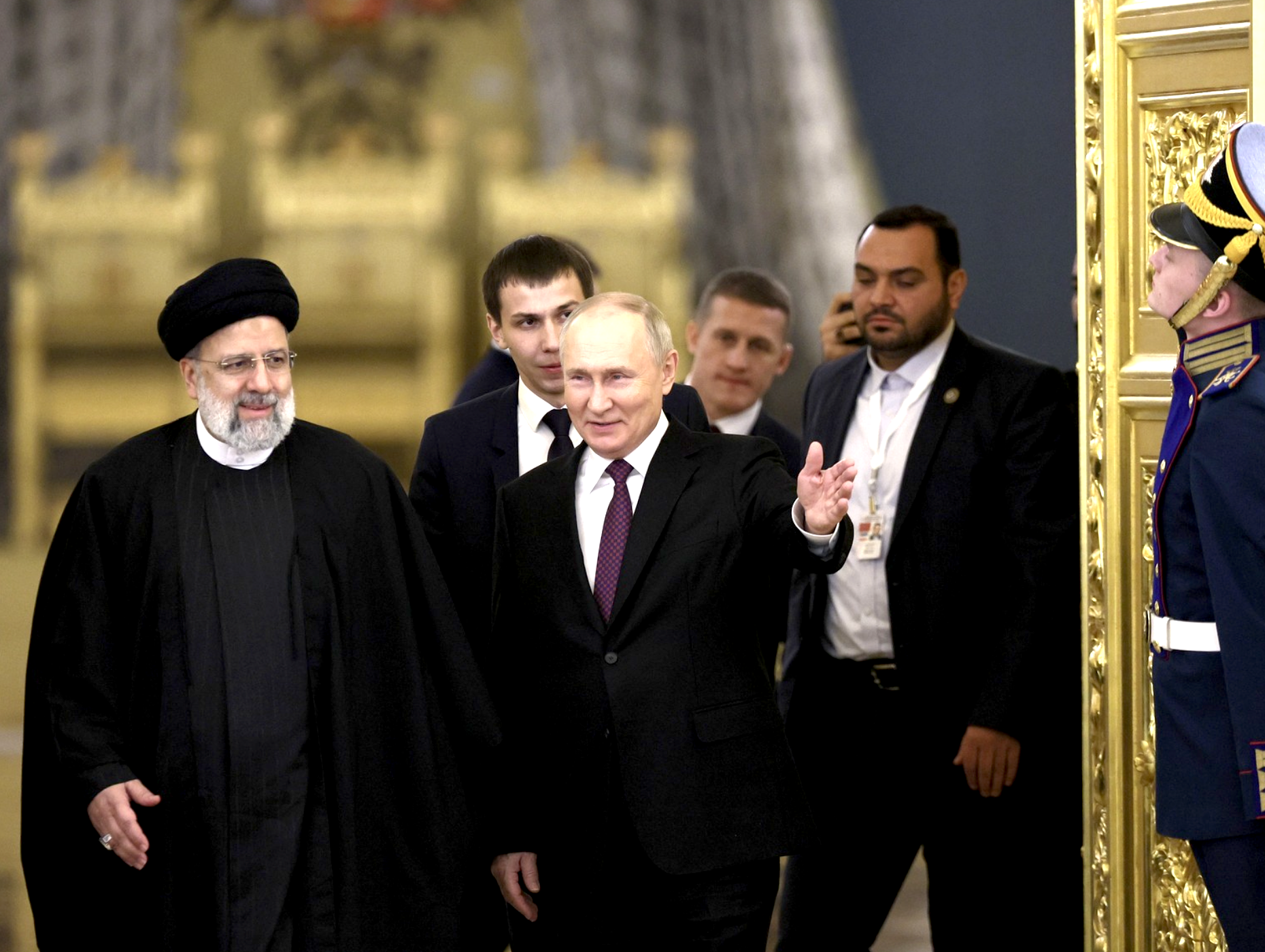
From left: Iran’s President Ebrahim Raisi and Putin in Moscow on Dec. 7. (Sergei Bobylev, TASS)
China has sent the same signals, if more measuredly. It has said repeatedly that it encourages a ceasefire and settlement talks and wants to count among the sponsors of such talks whenever they may begin.
It has not been clear lately where Beijing’s efforts to assert itself on the Israel–Gaza question stand, but it is entirely in keeping with the People’s Republic’s determination to raise its profile as a political and diplomatic presence.
Let’s not get lost in the idea of selfless altruism as the prevailing sentiment in Moscow and Beijing. While their positions on Israel and the Palestinians are as stated, it seems plain that these two powers see this crisis as an opportunity to advance their efforts to enlarge their presence in the Middle East.
Hence Putin’s complaint that Washington has for too long “monopolized the settlement process.” My prediction: We are watching a transformation in global diplomacy that will exert a significant influence on 21st century statecraft.
Not to be missed, Russia and China also put this latest Mideast crisis in the context of the new world order they both espouse. And they are altogether correct in this, not only in my view but, as I read them, in the views of other non–Western powers.
It has been widely reported that numerous nations, notably in Latin America and the Middle East, have recalled their ambassadors to Tel Aviv; Bolivia has severed relations altogether.
South Africa Sees Netanyahu Arrest Warrant
Now the South Africans are taking things further. After recalling its ambassador in early November, Pretoria [along with four other countries] has since referred Israel to the ICC for an investigation into what it, South Africa, considers war crimes and genocide in Gaza.
There’s no Leo Varadkar to blunt the message this time: It was South African President Cyril Ramaphosa who made this announcement. Here is Khumbudzo Ntshavheni, whose title is minister in the presidency, explaining the South African position to reporters after Ramaphosa made public the ICC referral:
“Given that much of the global community is witnessing the commission of these crimes in real time, including statements of genocidal intent by many Israeli leaders, we expect that warrants of arrest for these leaders, including Prime Minister Benjamin Netanyahu, should be issued shortly.”
Maybe, maybe not, given the extent to which the U.S. has corrupted international public space. But South Africa’s admirably unambivalent position is up there with Venezuela’s, I would say. You cannot be surprised, given South Africans’ bleak memories of their own 40–odd years under Afrikaner apartheid.
Once again, the history of imperial colonization returns to bite the West on its backside.
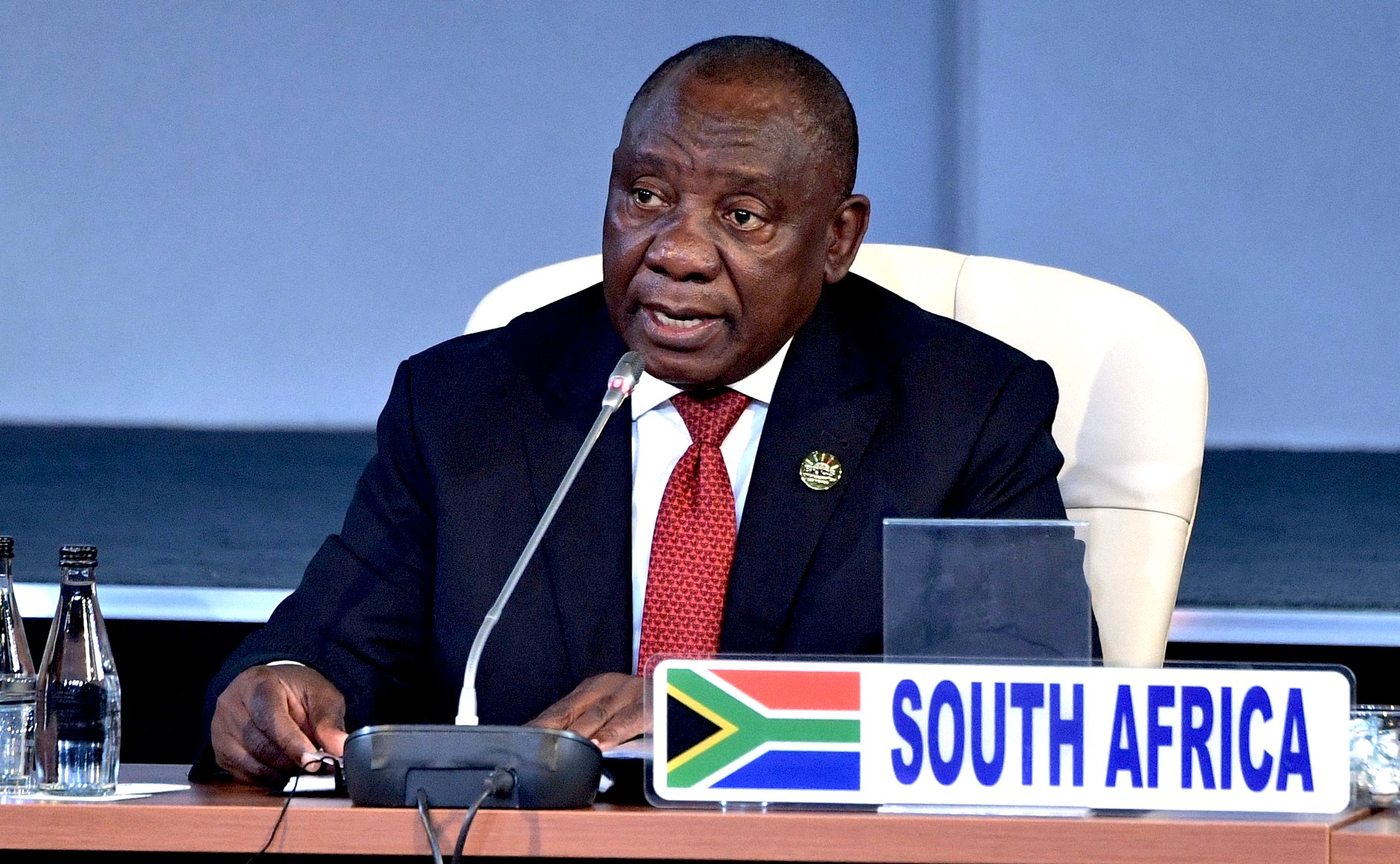
Ramaphosa at a BRICS summit in 2018. (Kremlin.ru, Wikimedia Commons, CC BY 4.0)
There are India and Brazil to consider, both among the larger and more powerful members of what we now call the BRICs–Plus group, originally comprised of Brazil, Russia, India, China and South Africa.
The India of Prime Minister Narendra Modi once again proves a disappointment. After decades of support for the Palestinian cause, Modi, a religious fanatic in thin disguise, has offered Israel more or less unalloyed support in what New Delhi calls a “counterterrorism operation” against Hamas. It is craven, reflecting the Indian PM’s Hindu-nationalist Islamophobia and his desire to stay on the Biden regime’s good side.
[Related: 10 Problems With India’s Stance on Gaza]
Brazil’s Lula Openly Critical
Luiz Inácio Lula da Silva, who returned to power as Brazil’s president last year, initially sought the middle ground from which he typically seeks to advance Brazil as a global diplomatic influence: Hamas’ Oct. 7 incursion into Israel was a terrorist act, Israel’s response has been disproportionate, we must support a two-state solution, etc.
But since the U.S. vetoed Brazil’s call for a humanitarian pause in the Security Council last month, Lula has moved toward an open critique of Israel and the Biden regime. “This is not a war, it is a genocide,” he said in a much-noted remark in mid–November. In an interview with Al Jazeera last week Lula asserted:
“There’s no leadership in the world today…. So we have a clear case of human insanity…. We have about 16,000 people dead, among them 6,500 children. We have 35,000 people wounded, we have 7,000 missing, and we have more than 40,000 houses destroyed, hospitals destroyed. In behalf of what? Humanity is going insane…. I can’t understand that a man as powerful as President Biden has not got the sensitivity to stop this…”
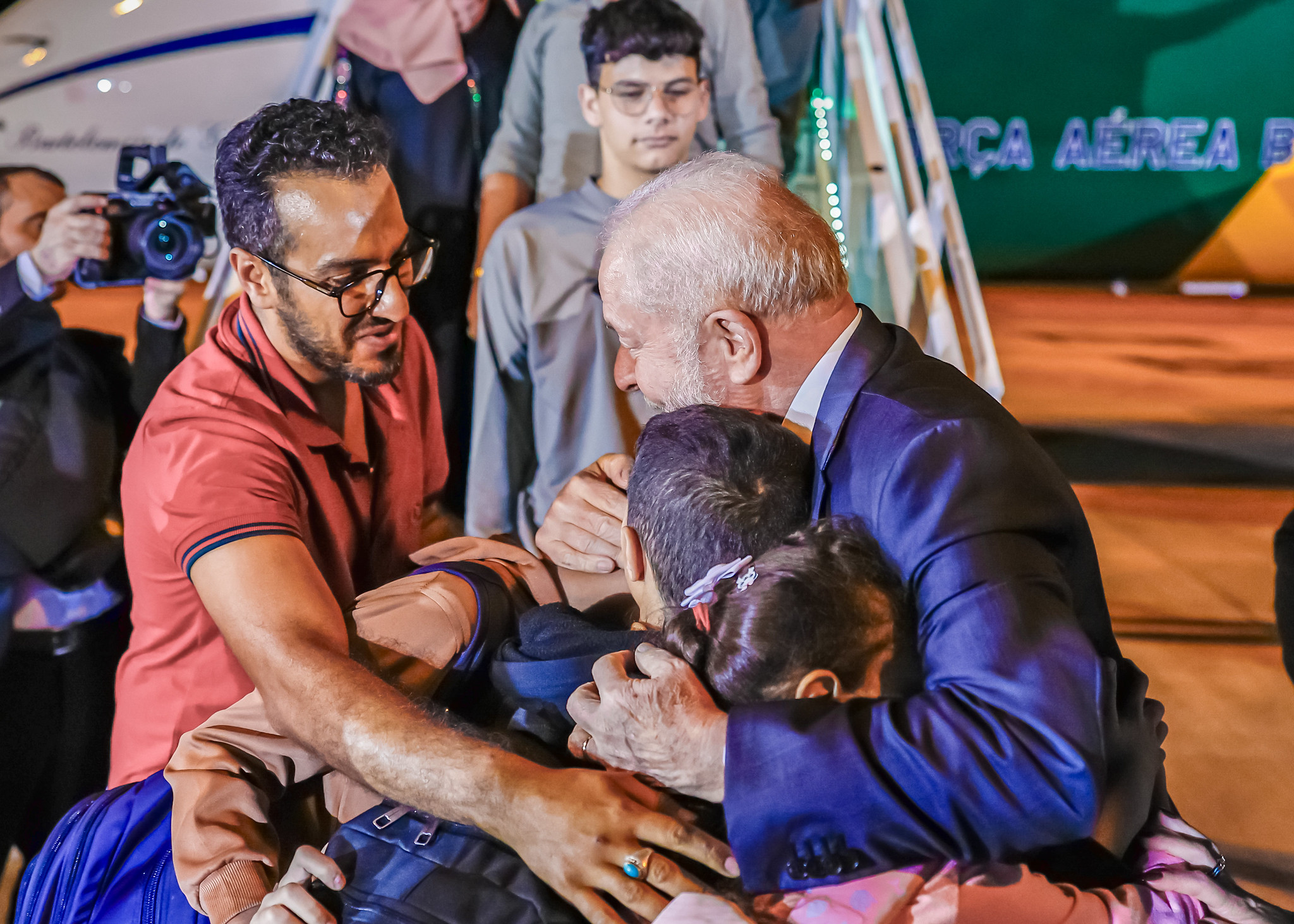
Lula, on right, on Nov. 13 with Brazilians and family members rescued from the Gaza Strip. (Palácio do Planalto, Flickr, CC BY-ND 2.0)
Domestic political balances, one or another kind of indebtedness or fear of the U.S., Hamas’ unjustifiable attacks on Israeli civilians: Factors such as these tend to temper some non–Western responses to the Gaza crisis.
But I detect beneath all the official statements, varied as they are, a certain unity of sentiment among the nations of the Global South. Of what is this unity made? From whence does it arise?
“We can frankly say that the dictatorship of one hegemon is becoming decrepit,” Putin said at a Russian forum on world affairs late last month. “We see it, and everyone sees it now. It is getting out of control and is simply dangerous to others. This is now clear to the global majority.”
I draw this quotation from an excellent piece by John Helmer, the longtime Moscow correspondent whose Dances with Bears website makes consistently good reading.
Putin has an advantage, if this is my term, when it comes to making blunt observations of this kind. His relations with the West are so far down the crater that he has nothing to lose in speaking his mind.
He is also gifted, as his speeches often make clear, with an exceptionally acute understanding of history and our moment as a passage in it. Does he speak for the non–West when he says such things as I have quoted?
This would be to take the thought too far, as non–Western nations are perfectly capable of speaking for themselves. But I am certain that Putin’s view of the “one hegemon” and the dangers it presents are commonly shared beyond the fence posts that separate the West from the rest.
Israel’s abominable campaign against the people of Gaza and Washington’s unabashed encouragement of it are two displays of the same phenomenon.
As the Gaza crisis unfolds, the world witnesses two nations that rely on power alone, raw, unadorned power, to advance what their leaders insist are their interests. In both cases, the one more or less a creation of the other, power and violence, or the threat of the latter, have for years been the fundament of their relations with others.
If this was obscured pre–Oct. 7, it is obscured no longer. It is the high visibility of the brute exercise of power that has catalyzed reactions such as those I have reviewed.
History, a history the U.S. and the rest of the West would rather the world forgot, also figures into non–Western responses to the Mideast crisis. As all the former colonies know well, empire does not have any care for humanity.
Empire is interested only in the continued projection of its power along with, in most cases, capital accumulation and profit extraction. These are empire’s raisons d’être.
The non–West, by dint of its shared experience and collective memory, sees Israel, which is nothing if not an imperial outpost, in this context. If Palestinians have asked for anything over the past 75 years, it is “a fairer world” — a phrase drawn from Putin’s recent speech — in the face of Israel’s relentless exercise of power over them.
Let us entertain no illusions as to the place in the world order of nations such as South Africa, Brazil, or others standing against Israel’s daily atrocities in Gaza. With the exceptions of China and Russia, they are not first-rank global powers. Even these latter two cannot match the West’s collective power.
But we must note a distinction I have drawn for many years: There are strong nations and there are the merely powerful.
Strong nations, among their many attributes, have an authentic ethos that consists of more than words, to the advance of which they dedicate themselves. They have a coherent vision of the future. They have, in a phrase, a genuine purpose, a cause, which is, however it computes out in practice, the human cause — the cause of a fairer world.
The merely powerful, whatever they may once have stood for, have hollowed themselves out by way of their reliance on violence, coercion, or the threat of either. The powerful usually prevail, if you have not noticed. Power prevails in Gaza as we speak.
But let there be no question of the merely powerful winning anything. They have already lost by way of all they have given up.
Zionism’s obsession with land and its attendant hatred of those dwelling on it are destroying Israel in real time. America’s seven-decade obsession with global preeminence has led it into a state of — but precisely — decrepitude.
History’s wheel does not turn in such nations’ favor.
Patrick Lawrence, a correspondent abroad for many years, chiefly for the International Herald Tribune, is a columnist, essayist, lecturer and author, most recently of Journalists and Their Shadows, available from Clarity Press or via Amazon. Other books include Time No Longer: Americans After the American Century. His Twitter account, @thefloutist, has been permanently censored.
TO MY READERS. Independent publications and those who write for them reach a moment that is difficult and full of promise all at once. On one hand, we assume ever greater responsibilities in the face of mainstream media’s mounting derelictions. On the other, we have found no sustaining revenue model and so must turn directly to our readers for support. I am committed to independent journalism for the duration: I see no other future for American media. But the path grows steeper, and as it does I need your help. This grows urgent now. In recognition of the commitment to independent journalism, please subscribe to The Floutist, or via my Patreon account.
The views expressed are solely those of the author and may or may not reflect those of Consortium News.
